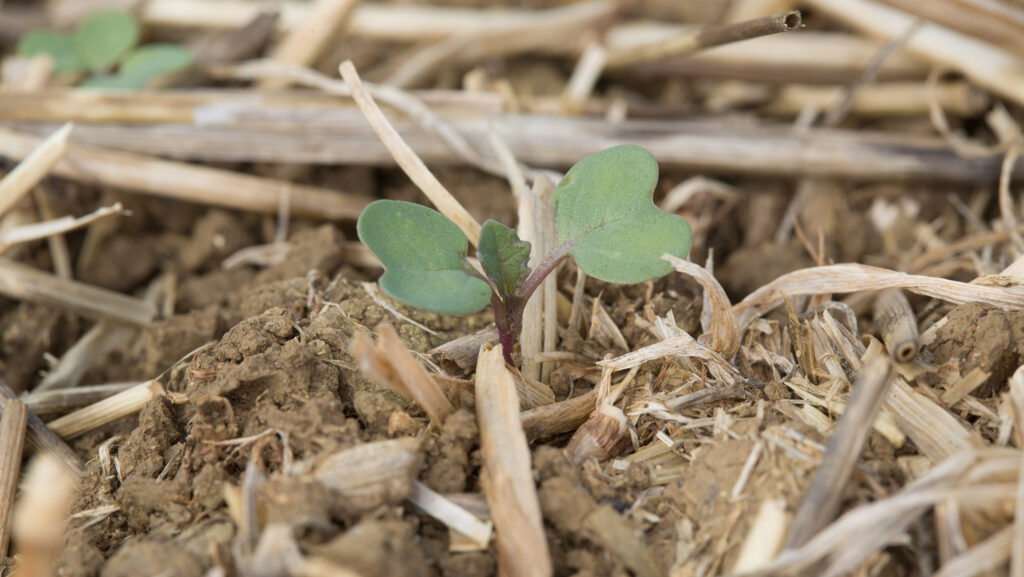UK oilseeds area rebounds after best establishment in years
 © Tim Scrivener
© Tim Scrivener Some confidence has returned to the oilseeds sector as growers report the “best establishment in years” following a favourable planting window for the crop.
Grower-owned co-operative United Oilseeds forecasts the UK oilseeds crop area at 283,300ha for 2026, above the 2025 estimate of 234,400ha but still well below historic levels.
Assuming average yields and typical weather conditions throughout the growing season, it predicts this could result in a total rapeseed crop just shy of 1m tonnes in 2026.
The co-operative has noticed a 25% increase in seed sales for the year ahead, especially for hybrid varieties.
See also: United Oilseeds maintains a profit despite smaller crop
A relatively successful 2025 crop, with higher yields, firm prices and less damage from cabbage stem flea beetle (CSFB), has encouraged more farmers to consider growing the crop again.
Delivered oilseeds prices were quoted at £429/t at Erith and Liverpool on 12 November.
At United Oilseeds’ conference on 6 November, managing director James Warner said: “I know we often see good establishment and this doesn’t necessarily translate to harvest.
“However, I am hopeful that with the noticeable lower CSFB levels and the industry-wide collaboration on the 10 strategies for managing CSFB in oilseed rape, we will see positive establishment turn into increased production next harvest.”
The numbers
- 283,300ha Forecast UK oilseeds area for 2026
- £429/t Delivered oilseeds price for November contract
- £423/ha Average gross margin for top 25% of growers
Domestic consumption for oilseeds is forecast to be around 1.9m tonnes for 2026-27, which means that even with a small carryover and a larger domestic crop, almost 1m tonnes of imports will be needed to meet demand.
Oilseeds production in the UK has declined throughout the past decade, partly due to policy changes such as the neonicotinoid ban and a greater proportion of land going into sustainable farming schemes.
Mr Warner said: “These policies don’t reduce environmental impact, they simply offshore it, creating an increasingly unlevel playing field for UK farmers.
“While we take productive land out of rotation in the name of environmental stewardship, countries like Brazil have quadrupled their OSR production in just five years.
“Yet Brazilian OSR yields are half those of the UK, meaning that for every one hectare we remove from production here, two hectares must be cultivated elsewhere to produce the same volume, exacerbating the deforestation picture.”
Proposed measures such as the Carbon Border Adjustment Mechanism (Cbam) could also affect the sector moving forward.
Mr Warner said a £50/t increase for fertiliser due to Cbam would equate to an additional £15/t cost for growing rapeseed, making UK farmers less competitive.
Sarah Woolford, AHDB cereals and oilseeds sector director, also noted the longer-term decline in the oilseed rape areas across the UK and EU.
However, she added that the crop could still provide a profitable option for many arable enterprises, with the top 25% of farmers achieving a margin of £423/ha.
